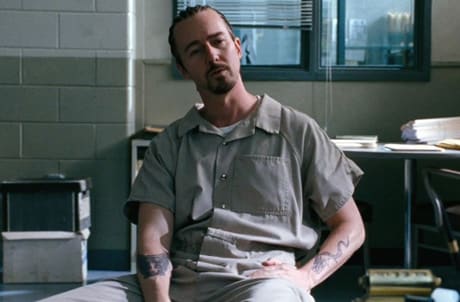For anyone who watched the Greatest Actor of His Generation fumbling around in the ball pit at the end of Little Fockers (or, for that matter, who saw any five minutes of The Adventures of Rocky and Bullwinkle or Righteous Kill), Robert De Niro has been looking dangerously similar to late period Jake La Motta. Why would a man responsible for as many great performances in as many masterpieces as any actor in film history settle for becoming a bloated self-parody in so many forgettable comedies and action flicks? It's hard not to feel a bit betrayed, but maybe we should give him the benefit of the doubt: most forms of artistic expression keep the artist at a slight remove ― a painter uses paint and canvas, a poet uses the printed word ― but actors must express themselves through the medium of their bodies, and acting is a young man's game. We can't reasonably expect De Niro to keep punishing his 60something body like he did in Raging Bull, and whatever edgy sexiness he had in the Mean Streets era has been displaced by grey hair, a paunch and a face that forms deep lines whenever he launches into that trademark De Niro scowl. In youth-obsessed Hollywood, it's entirely conceivable that he just doesn't get the plum offers you expect and, to put it bluntly, he has the additional obstacle of being late period Robert De Niro. He has become larger, deeper-voiced and more physically imposing than ever, less able to simply vanish into roles (it was particularly jarring to watch him as a put-upon movie producer in What Just Happened?). But there is still much to be done with a body like De Niro's, and Stone includes some of his best work in years. He plays Jack, a parole officer "days away from retirement," assigned one last case study: Stone (Edward Norton), an arsonist eight years into his sentence. Norton has the "showier" role ― he gets to swear and braid his hair into cornrows and affect a strange jive accent ― but it's De Niro who leaves the greater impression just by sitting silently, shooting a dubious little eye roll over his glasses. His face radiates a mix of contempt and world-weariness: the two would be playing psychological power games, if only Jack cared to participate. These scenes play in contrast to Jack's encounters with Lucetta (a potent Milla Jovovich), Stone's wife, who will do "anything" to help her husband's chances; De Niro's been-there-done-that worldliness melts away and his sad, old face becomes… well, sad and old. And when we see Jack sitting on the porch with his wife, bored and unable to connect, wearing the same grumpy facial expressions he used on Stone, the tough, burly, late period De Niro melts into a sad pile of flesh. It's comforting to know that even in the Little Fockers era of his career, De Niro still knows how to use his body as his instrument. Blu-Ray extras are limited to the usual fluffy EPK interviews.
(VVS Films)Stone [Blu-Ray]
John Curran

BY Will SloanPublished Jan 17, 2011